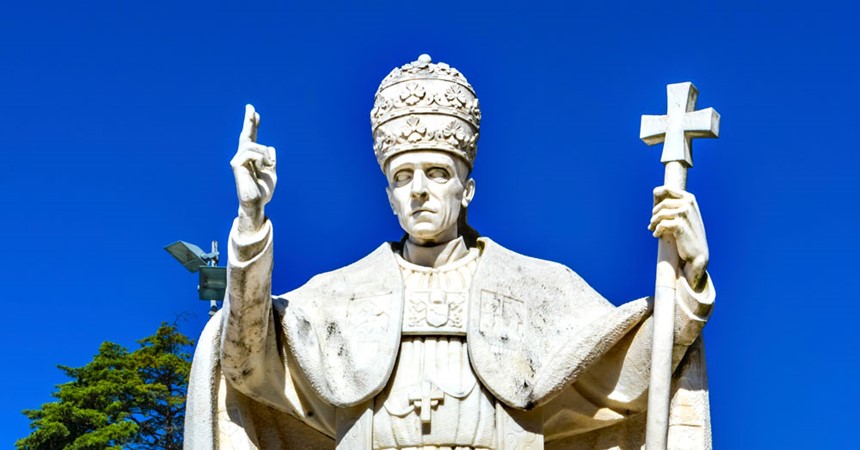On 2 March – years earlier than expected – the Vatican will open up its sealed archive on Pope Pius XII, who led the church during World War II.
Pius, Pontiff from 1939 to 1958, has been accused of tolerating the rise of Nazi Germany and of being negligent in his efforts to protect Jews during the Holocaust.
His detractors hope the archives will finally enable historians to prove Pope Pius failed in his response to Nazism. However his supporters, who believe Pius XII helped save Jews behind the scenes, hope the documents will prove he acted appropriately and therefore strengthen the case for his sainthood.
In 2008 at a Mass marking the 50th year since Pius’s death, Pope Benedict XVI defended his predecessor, saying he worked “secretly and silently to avoid the worst and save the greatest number of Jews possible”.
The church officially declared Pius “venerable”, a precursor to beatification, in 2009 but three of his successors – Popes John XXIII, Paul VI, and John Paul II – have now been declared saints before him.
The delay has been attributed to the accusations Pius failed to condemn Nazism with some Holocaust survivors describing the church’s decision to declare Pius “venerable” as “profoundly insensitive and thoughtless”.
The Vatican usually opens its archives 70 years after the end of a pontificate, but scholars for decades have been calling for the early release of Pius’s papers.
Criticism of Pope Pius’s perceived inaction during World War II gained traction in 1963 with the publication of Rolf Hochhuth’s play, The Deputy, A Christian Tragedy, which accused the pope of indifference to the Holocaust.
Over the next decade many books were published on the subject before interest spiked again in 1999 following the publication of Hitler’s Pope by British journalist John Cornwell. He argued that Pius’s prior career as a diplomat helps explain why he didn’t openly denounce the Nazis.
Pius XII was Eugenio Pacelli, the son of a Vatican lawyer. Before he became pope, he served as both the Vatican’s ambassador to Germany and the Vatican’s secretary of state. During this time he supported General Franco in the Spanish Civil War, and the friendly relationship between the Vatican and Benito Mussolini led to the creation of the sovereign state of Vatican City in 1929.
“The church isn’t afraid of history,” Pope Francis said in March last year when he announced his decision to open the archive early. He said Pius’s pontificate included "moments of grave difficulties, tormented decisions of human and Christian prudence, that to some could appear as reticence".
The American Jewish Committee (AJC) welcomed the decision and said it had pressed the Vatican for more than three decades to make the wartime papers public.
"It is particularly important that experts from the leading Holocaust memorial institutes in Israel and the US objectively evaluate as best as possible the historical record of that most terrible of times, to acknowledge both the failures as well as the valiant efforts made during the period of the Shoah [Holocaust]," said the AJC's, international director of interreligious affairs, Rabbi David Rosen.
The United States Holocaust Memorial Museum, director, Sara J. Bloomfield said in a statement last year that it was “long overdue for speculation to be replaced by rigorous scholarship, which is only possible once scholars have full access to all of these records. This is important for the sake of historical truth, but there is moral urgency too – we owe this to the survivor generation, which is rapidly diminishing.”
Pope Francis said he was confident that “serious and objective historical research will allow the evaluation of Pius in the correct light”, including “appropriate criticism”.
In our April edition Aurora will examine the first reactions of scholars and commentators to the newly released documents.



























































































